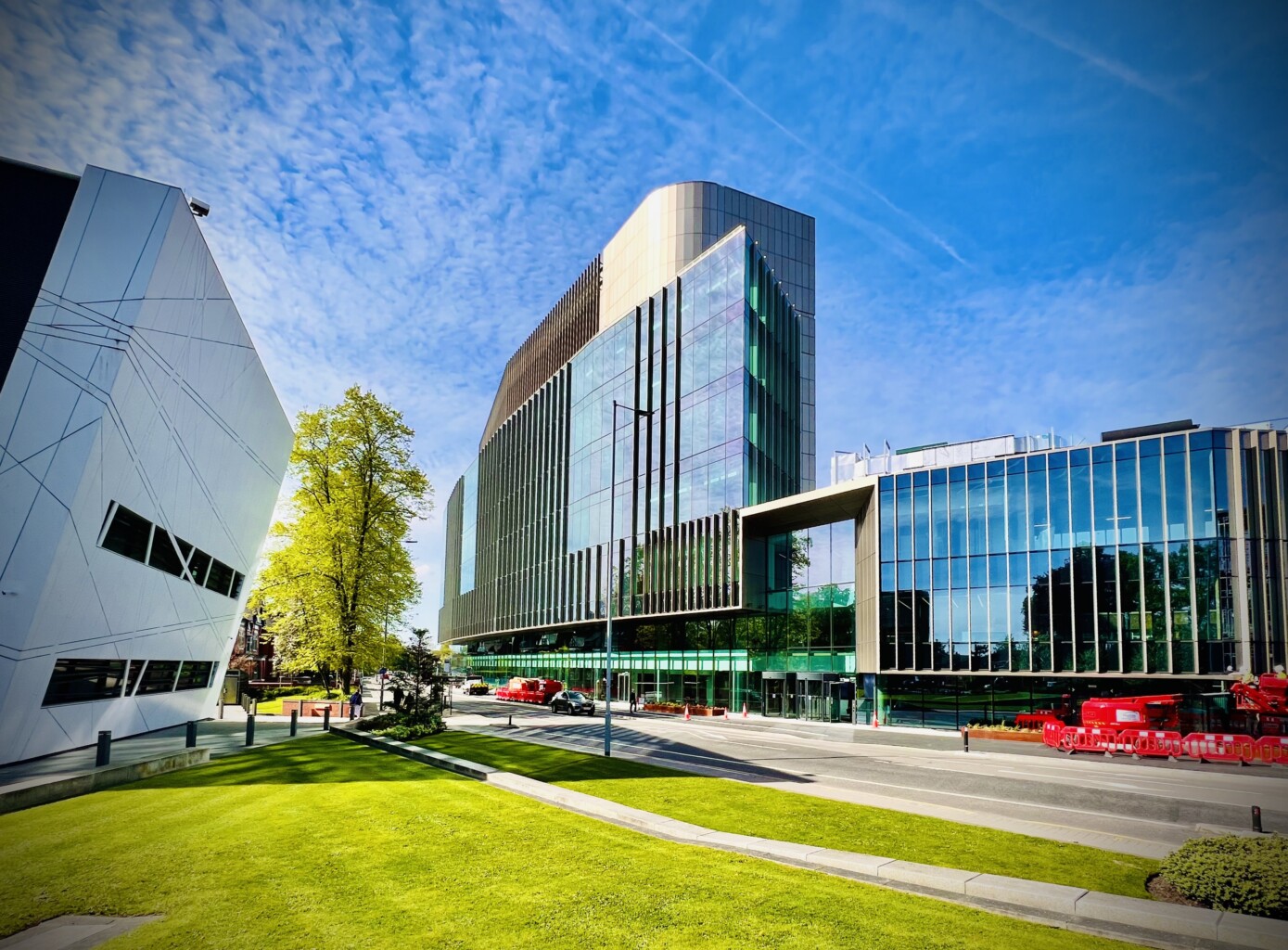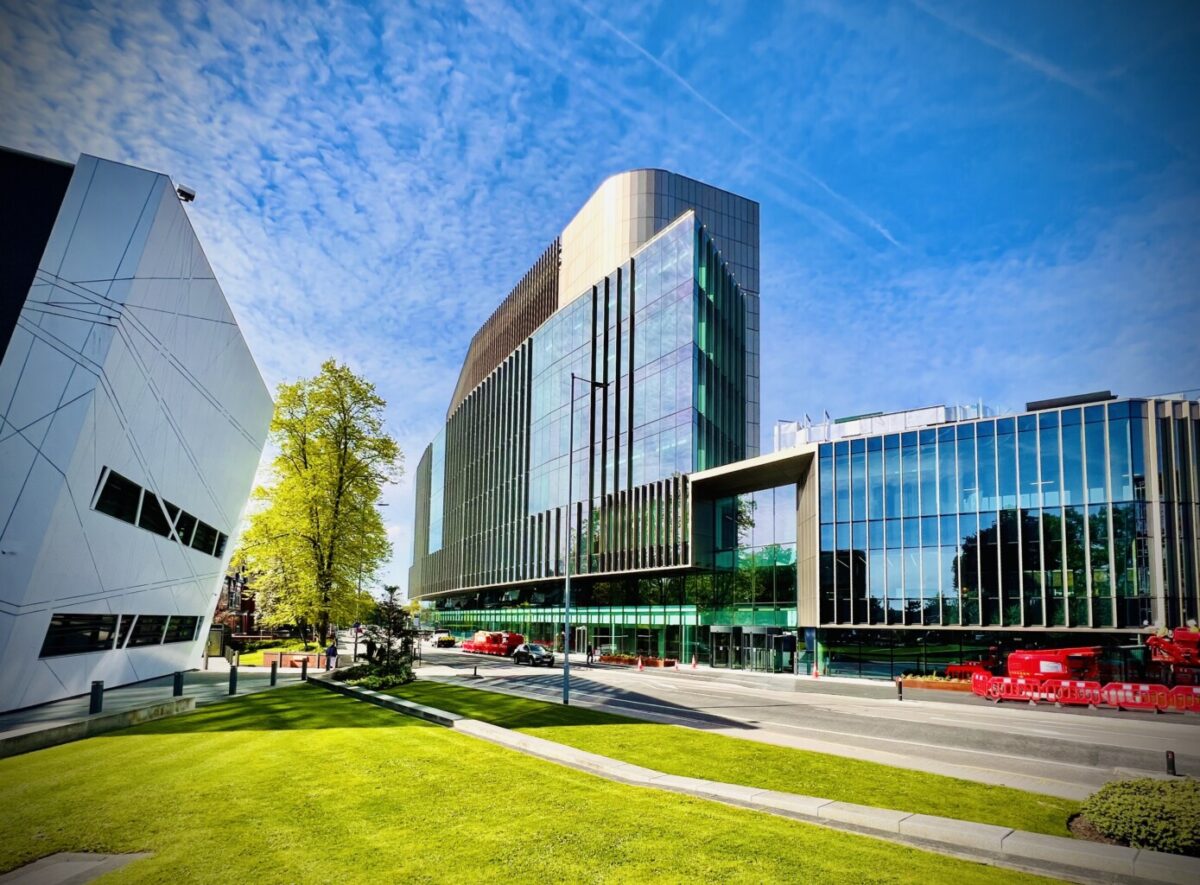In 2017 the former Paterson Research Building in Manchester, which housed Cancer Research UK, suffered a devastating fire displacing over 300 scientists and research staff, disrupting its world-leading research activities. Subsequently, the Paterson Building Redevelopment project has provided the opportunity to create one of the top cancer research centres in the world.
The redevelopment provides heavily serviced and engineering laboratory space and is twice the size of the original building at 26,000sqm. The state-of-the-art facility developed in partnership with The Christie NHS Foundation Trust, The University of Manchester and Cancer Research UK involved significant, wide-reaching collaboration across all stakeholders, contractors, specialist services and supply chain.
Challenging project procurement occurred during Covid-19 and Brexit- only overcome by close collaboration with original designers and all stakeholders. With a critically time-sensitive programme to manage, it was imperative that all works were efficiently coordinated with a fully integrated ethos and understanding to ensure a successful on-time delivery.
We take great pride in ensuring this highly integral flagship building has quickly become operational for such an important, profound cause that impacts so many. A building that has also been designed to facilitate collaboration between hundreds of researchers and clinicians and bring displaced staff back together.
Three Winning Facts:
- This project was successfully delivered on time, in budget, with minimal defects and exceeding the clients’ expectations.
- A One Team Approach from all stakeholders, main contractor, sub-contractors and supply chain was implemented to ensure a successful delivery.
- The early engagement, collaboration and management of the supply chain was pivotal from the tender stage of the project through to the project’s practical completion. The Dalkia Way Continuous Improvement programme was used, which provided key information sharing and support across all levels on daily, weekly, and monthly basis.


